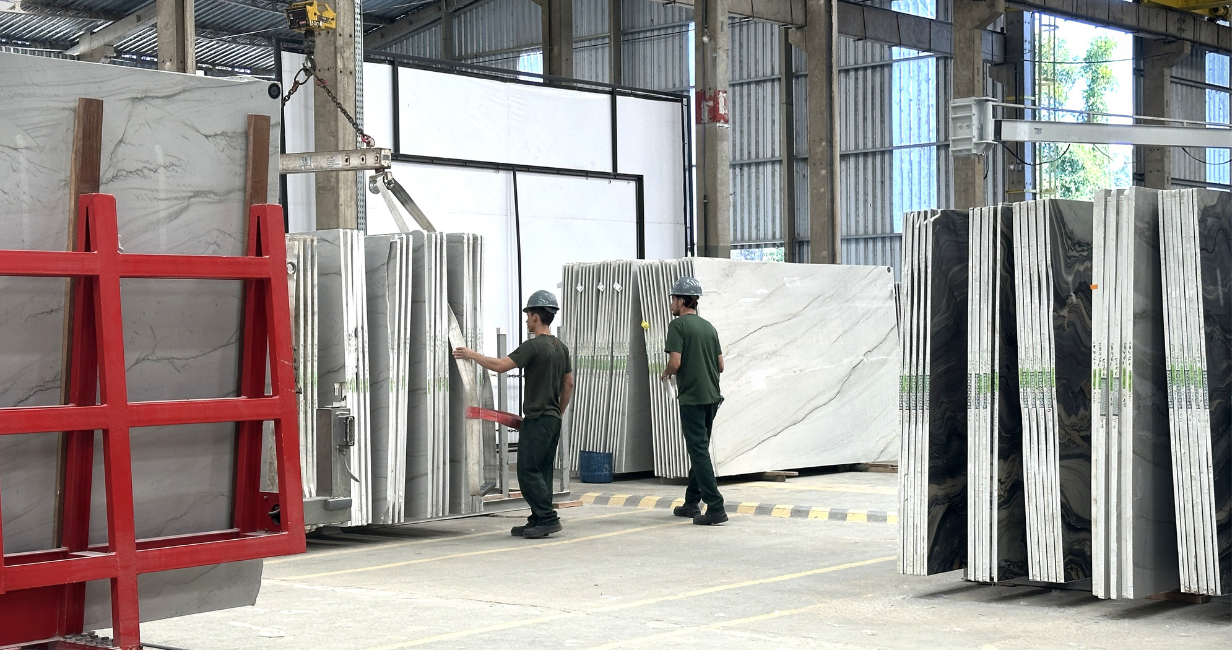
Data shows that sales were directly impacted by tariffs imposed by the United States, with significant drops in exports of granite and marble. Despite this challenging scenario, the sector has been mainly driven by quartzite exports, which have helped offset some of the losses.
The additional tariffs imposed by the U.S. on various Brazilian products have produced tangible effects on the natural stone sector, especially affecting exports of granite, and marble. According to data released by the Brazilian Natural Stone Association (Centrorochas), exports totaled USD 1.24 billion between January and October 2025, a 20.3% increase compared to the same period last year; however, this growth does not reflect a stable environment.
Projections indicate the sector could have achieved even stronger results if not for the steep decline in sales to the U.S. of materials directly impacted by the tariffs. Granite exports, for example, fell by 14.7% and marble by 9.8%. These products are subject to the U.S. government’s additional 50% tariff, which has hindered their competitiveness compared to other global suppliers.
It is important to highlight that although Brazilian natural stones appear on the list of critical non-metallic minerals for the U.S. residential construction supply chain, only one tariff classification (HTSUS 6802.99.00) was exempted from the additional tariff. This code covers quartzites whose demand has seen significant growth. Other materials such as marble, and granite remain subject to the surcharge, undermining their international competitiveness and limiting the full export potential of the sector. “Brazil has the greatest geodiversity on the planet, with more than 1,200 varieties of natural stone, a unique potential that remains largely untapped in global trade,” stated Centrorochas president Tales Machado.
Premium applications in kitchens and bathrooms
With high added value and recognized for their strength and durability, Brazilian quartzites have been extensively applied in the U.S. market, especially for kitchen and bathroom countertops where aesthetics and performance are crucial. This usage does not compete with U.S. domestic production of marble and granite, which traditionally serves monuments and public works. This reinforces the complementary rather than substitutive role of Brazilian natural stone in that market.
The United States remains the primary destination for Brazilian natural stones, accounting for 53.9% of exports between January and October this year. China follows with 17.0%, and Italy with 8.3%, both achieving record purchase volumes, particularly of raw blocks that are subsequently processed and sold across various continents.
According to Centrorochas president Tales Machado, these circumstances underscore the importance of a technical and strategic response to international challenges. “Since the tariff hike announcement, we have undertaken vigorous business diplomacy with technical and institutional agendas in Washington, D.C., aiming to mitigate the measure’s effects and open pathways for sustainable growth. The strong performance of quartzites demonstrates that this approach works and that Brazil remains relevant and competitive in the global natural stone market,” he concluded.
Correction – Soapstone Exports
We would like to inform you that soapstone is not included in the list of products subject to tariffs by the United States, contrary to what was previously published in our content on the performance of exports in the natural stone sector.
See also
An unparalleled record: 2025 ...
12 de January de 2026
Business Roundtable in Dubai ...
30 de December de 2025
It’s Natural Steering Comm ...
30 de December de 2025







